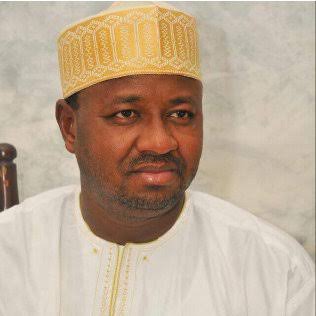By Umar Ardo, Ph.D
Again, having won this hard earned victory against all odds, it is critical for the sake of the country that the regime succeeds. And this success is largely dependent on four key elements:-
1. The sincerity of purpose and commitment of the president in carrying out the functions of the office he contested for and which Nigerians entrusted him with;
2. Coordinated consultations and taking of advice;
3. Those to be appointed into key offices of government, i.e. ministers, advisers, chief executives, etc.; and
4. Learning to avoid mistakes of predecessors.
Given the underlining nationwide political variables of his coming to power, these four elements will essentially be the bedrock of determining the success or otherwise of his administration.
The first point is actually an issue of intention, which entirely rests on the personal disposition of the President-elect. Once he is sincere in his intentions towards the nation in the use of state power then the rest is easy. All that will be required is to bring his noble intentions to bear in the exercise of the state power now in his control.
The second point rests on the familiar standard of the universal norm of leading through consultations and advice, which are foundational elements of successful leadership.
This third point is the institutional offices of Ministers and Special Advisers, with their functions, vital in the due discharge of governance. Those appointed to these offices constitute the first line of official teams for advice and execution of public policies. The success or failure of his regime rests as much on his ability as a leader as on the competence or otherwise of his ministers and advisers. This point needs further explanation.
In underscoring the point, the 1999 Constitution of our country (as amended) creates at the federal level the Council of Ministers and offices of Special Advisers for the good purpose of executing the powers and functions due to the Office of the President. This invariably means that the stability and good governance of the country are dependent on the sound character, right practice and good judgment of the President; while the well-being and quality judgment of the President depend on the knowledge, skill and honesty of his official advisers. Blessed therefore is the President with truthful, knowledgeable, intelligent and right-doing advisers.
Advising a leader, therefore, is an onerous task that necessarily requires very special proficiency to perform. Great political thinkers are agreed that ministers and advisers need five basic attributes, if their works are to be fruitful and satisfactory:-i. Wisdom, whereby they will perceive clearly the outcome of everything into which the Principal may enter; ii. Knowledge, whereby implications of actions of the Principal will be open to them; iii. Courage, so as to act as and when appropriate on the Principal; iv. Honesty, so that they will treat all things and men truthfully without exception; and v. Discipline, so as to keep official secrets secret at all times. If the President is able to appoint suitable men, then he is most likely going to succeed, for ‘a good minister/adviser is like the ornament of the King’; but if he is unable and appoints unsuitable men, then his regime is most likely going to fail. Aristotle, that great Greek philosopher, said that when a ‘king’ has an unsuitable [ignorant] minister/adviser, his reign will be like a cloud which passes on without dropping rain.
Instructively, in our presidential system of government, all ministers/advisers are solely appointed by the President. This means that the quality of advice and execution of public policy are also solely dependent on the kind of ministers/advisers the President-elect assembles to himself. In appointing ministers/advisers, the president’s skill or lack of it to distinguish the great disparity that exists between men who are suitable and men who are not itself can decide the ultimate destiny of his regime. The President-elect may well need to heed to Aristotle’s admonition; ‘good advisers are needed to help the King spare his reign’.
The fourth point is to learn from past historical trends, especially the mistakes of predecessors and avoid them. I will expatiate few examples on this point.
First, is the inauguration of the National Assembly (NASS). The President-elect needs the NASS on his side to perform optimally. To this end, the President-elect should avoid the mistake of his predecessor and personally inaugurate the NASS so as to create an interpersonal relationship with members. This would not only forestall the crises Buhari’s presidency faced with the NASS in its first term, it would instead create a strong bond of goodwill and confidence-building between the two arms of government, thereby earning the executive full cooperation of the legislature. He will be able to also influence the type of leadership he needs in the legislative houses.
Second, unlike his predecessor, he must composite his governing team quickly. It is important to timeously and decisively take charge of levers of state power and immediately create effective authority to drive government policy thrusts, create a good first impression of the President’s leadership style, trigger people’s confidence in his government’s policy initiatives, and substantially muster public faith in his personal capacity to provide effective leadership to the country.
Third, in resolving the intractable debilitating problems of the country, especially the security issues, the President-elect should also avoid the mistake of his predecessor. For example, in deciding the policy thrusts of his administration, he initiates the appropriate wide range consultations with necessary stakeholders; thereby appreciating the fact that the problem is more of a sociopolitical than a military one. It is therefore advisable that before the President-elect takes any decision and makes any pronouncements on any critical issue, wide ranging coordinated consultations are made with critical stakeholders so as to arrive at the best form and method of handling the issue at hand.
These consultations are important on two aspects – first, they will help formulate alternative devises that are locally initiated, people-owned, people-friendly and practically effective in the resolution of the issue at hand; second, it will be politically beneficial to the President because he will be seen to be carrying the people along in his policy formulation and implementation processes. This way the people will feel part of it and therefore support it. But failure to do so will alienate the people and distance them from such policy initiatives, thus further create a poor impression of government’s policy directives with its debilitating loss of peoples’ confidence in the president’s method of governance; leading to policy implementation failure.
Fourth, is the dispensing of patronage to those who contributed to the success of the president. The biggest political problem of President Buhari is the outright neglect of those who contributed to his political success. The President-elect must identify, recognize and patronize those who supported him and contributed to his political aspirations. This way he will retain their support and be guaranteed of their loyalty.
If these points are taken into account, it is my humble submission that the Tinubu regime will succeed where others have failed.
Dr Umar Ardo is a historian and public servant based in Abuja. Dr Ardo was the SDP Governorship Candidate in Adamawa State for 2023










